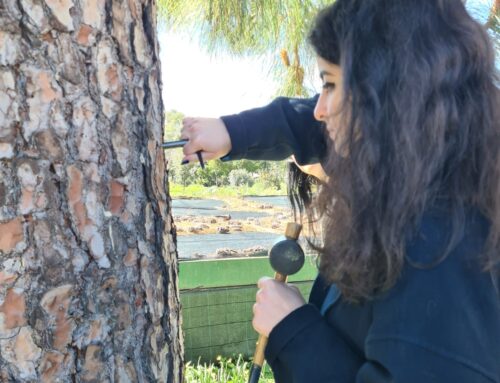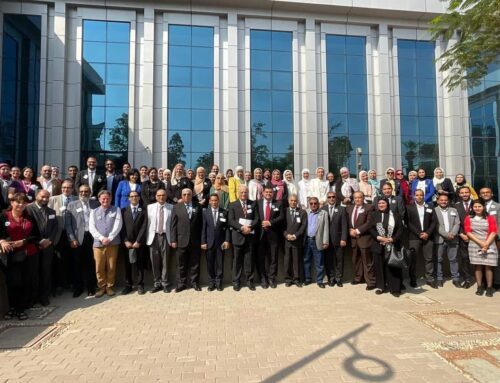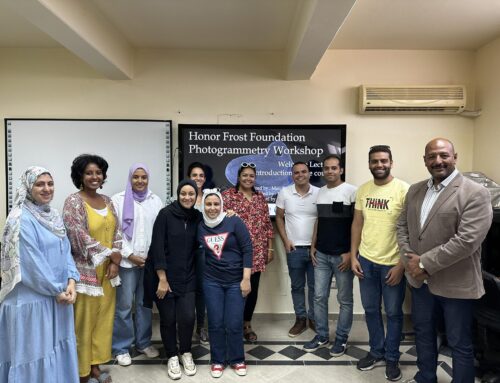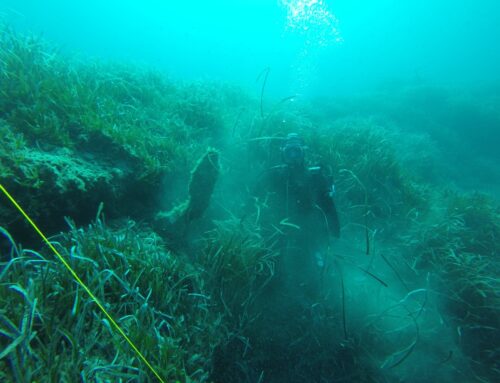During the 2023 survey season, HFF offered several placements with the Democratising Deep-water Survey: Innovative Low-cost Multi-AUV Survey of Shipwrecks in the Strait of Sicily project. The placements offered early career researchers working on research or survey projects in the region the opportunity to train on an exciting new piece of equipment, a low cost AUV. On this page, the scholars describe the exerperience and impact on their work in their own words.
Ziad M Morsy
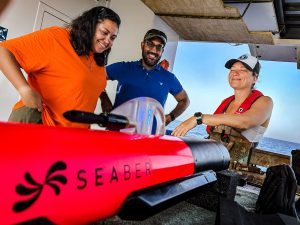 The first season of deep-water survey in the Strait of Sicily (Canale di Sicilia) was held in the summer of 2023. The team deployed three Seaber AUVs with sidescan sonar (200khz and 680khz) and integrated cameras to obtain sonar data and video footage of seafloor features. My participation in the fieldwork was during the two weeks between 10th and 24th of July. The first week of my participation included extensive, hands-on training on using the SEABER Micro AUV system, its software, and pre-deployment preparation: deployment, tracking, retrieval and post-deployment processing. Despite having the knowledge about use and deployment of marine geophysics, I lacked the practical real-life aspect. I have fulfilled this aspect by joining this mission. I have also increased my knowledge about the use of AUC, ROV, and research vessels in the field. This all reflects on my capabilities and experience in running the Nile project in Egypt.
The first season of deep-water survey in the Strait of Sicily (Canale di Sicilia) was held in the summer of 2023. The team deployed three Seaber AUVs with sidescan sonar (200khz and 680khz) and integrated cameras to obtain sonar data and video footage of seafloor features. My participation in the fieldwork was during the two weeks between 10th and 24th of July. The first week of my participation included extensive, hands-on training on using the SEABER Micro AUV system, its software, and pre-deployment preparation: deployment, tracking, retrieval and post-deployment processing. Despite having the knowledge about use and deployment of marine geophysics, I lacked the practical real-life aspect. I have fulfilled this aspect by joining this mission. I have also increased my knowledge about the use of AUC, ROV, and research vessels in the field. This all reflects on my capabilities and experience in running the Nile project in Egypt.
Other discussions about using the same AUVs in similar projects in the Eastern Med stemmed from this fieldwork. I can see now that this type of equipment can complement our work with multi-beam that will be deployed in the Nile. It can be also used in many other projects across Egypt.
The experience from this fieldwork will also help me train the Egyptian team on the latest techniques of remote sensing.
Edmond Tannous
Participating in the week-long AUV workshop in the Strait of Sicily from July 3 to 10 was a remarkable experience that broadened my understanding of underwater exploration.
Dr. Briggs and Dr. Campbell ensured our safety through a comprehensive onboard briefing. They introduced us to the portable AUV from Seaber, covering its components, operational intricacies, and mission planning essentials. Learning to preplan AUV flight missions and deploy the vehicle using a small rib boat provided hands-on insight into its capabilities.
The retrieval process, data download, and analysis shed light on the immense potential of AUVs for underwater research. The workshop not only exposed the capabilities of the technology but also highlighted its limitations, offering a well-rounded perspective.
This experience expanded my horizons, deepening my understanding of underwater topography and fostering a newfound appreciation for the uncharted depths of our oceans.
Mohamed Khedr

Before this training, I was planning to submit a proposal for a diving only survey but now…I found that there is a possibility to use those devices in this project so we can use both the diving and the modern technology.
Georgia-Dimitra Kyriakou
Since I didn’t have the slightest experience with Remote Sensing Techniques applied in maritime archaeology, this project was a great opportunity to learn the principles in practice. Initially, I learned the history and the theory of the autonomous survey in maritime archaeology. Practically, I gained knowledge regarding the mechanical properties of the AUV (Seaber Yuco Scan), how to deploy and, consequently, to recover it after the scheduled ‘mission’, as well as all the necessary procedures between the deployments. Furthermore, I acquired knowledge on designing the AUV’s deep water mission and I was involved with the data processing of the side scan sonar. The experience of living on a boat was also unique, as well as working on remote sites with old and new colleagues. One of the most intriguing parts was to experience how the problems are troubleshooted and dealt with in the field. I strongly believe that it would be very interesting for a similar survey to be conducted in the Eastern Mediterranean. I am very grateful to the Honor Frost Foundation for supporting me and providing me with this opportunity that expanded my academic horizons.
Massimiliano Secci

Sirine Saad El-Dine Ghiye
To be member in Strait of Sicily project enhanced my skills and open my horizon for learning new technique which serve the marine science and maritime archeology. From this experience, I become more able to increase my knowledge and I’m looking forward to join another time in the mission because I learn a lot of making plan and focus on interested area to solve problem and response for question.

